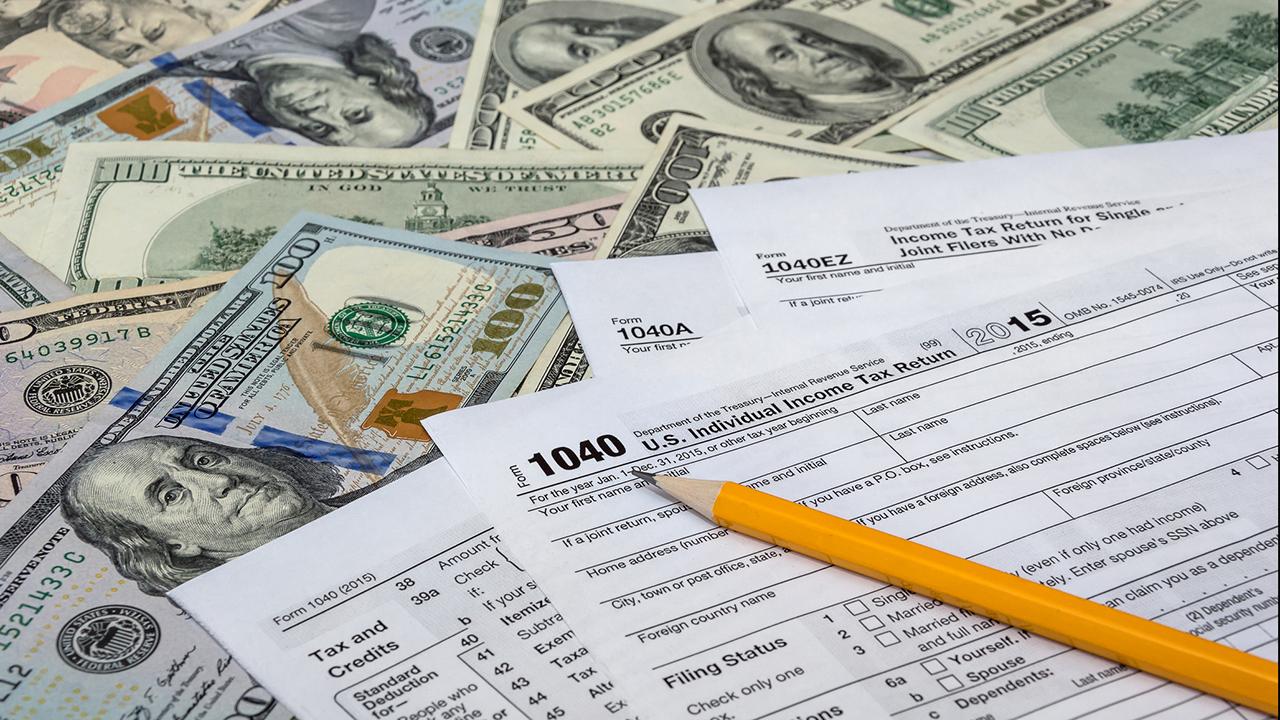New Jersey's Democratic governor vows to fight for millionaire’s tax
The Garden State saw the most outbound migrations last year, according to a recent study
New Jersey’s Democratic Gov. Phil Murphy has not given up his fight to raise taxes on the state’s wealthiest residents.
During his State of the State address Tuesday, Murphy promised to fight every day for the middle-class values that built the Garden State, including his “fight for a millionaire’s tax” to ease the property tax burden on millions of middle-class families and seniors.
“The millionaires and corporate CEOs made out just fine in the last recession, and I assure you they will again when the next one hits,” Murphy said.
Revenue from the tax, Murphy added, could also be used to fund schools.
NEW YORK, NEW JERSEY, HAVE HIGHEST RESIDENT EXODUS IN 2019
He did not detail the rates he would like to impose on those earning more than $1 million on Tuesday.
However, the tax has been a long-time goal of Murphy's. Last year, he wanted to implement a millionaire’s tax with a top rate of 10.75 percent on people with incomes over $1 million. However, amid disagreements with the state legislature, which threatened to shut down the state government, Murphy agreed to sign the budget without it.
At the time Murphy hinted that he was not quite ready to let the millionaire’s tax go. In July, he said the spending plan was a “victory for working class families” but that it also lacked tax fairness.
HIGH-TAX NEW YORK CONTINUES TO LOSE RESIDENTS TO FLORIDA, NEW DATA SHOWS
President Trump praised New Jersey legislators for the state budget that left out Murphy's pet tax project. In a tweet at the time, Trump said the decision would keep “many” who were “planning to leave” in the state, while he encouraged other high-tax states to rethink their tax laws.
The current top income tax rate on individuals in New Jersey is more than 8 percent, as it is in neighboring New York.
JPMorgan CEO Jamie Dimon also weighed in on the tax during an interview with FOX Business' Maria Bartiromo on Tuesday, saying it's a bad policy that is hurting the people it is intended to help.
“They’re doing things that hurt the people,” Dimon said. “And so yes, you may get some billionaires out that you don’t want there, stuff like that, but you want jobs, you want production, want your school to work, you want infrastructure.”
As previously reported by FOX Business, New Jersey had the highest number of outbound migrations of all 50 states last year – at a rate of 68.5 percent. And the highest percentage of residents that left the state were wealthy, with nearly half of all outbound migrations occurring at income levels of $150,000 or more.
States with the highest outbound migration rates in 2019:
New Jersey:
Outbound migration rate of 68.5 percent.
Tax rates in the state range from 1.4 percent to 8.97 percent.
Illinois:
Outbound migration rate of 66.5 percent.
The state has a flat income tax rate of 4.95 percent.
New York:
Outbound migration rate of 63.1 percent.
The state's top rate is 8.82 percent.
Connecticut:
Outbound migration rate of 63 percent.
Taxes vary from 3 percent to 6.99 percent.
Illinois and New York also saw the largest outflow of residents at the highest income brackets. California ranked seventh among the top outbound states.
Recent U.S. Census Bureau data showed similar patterns, as New York, New Jersey and Connecticut each lost tens of thousands of residents to Florida, which has no statewide income tax.
High-tax states like New Jersey have been hurt by a $10,000 cap on state and local tax deductions, imposed as part of the 2017 Tax Cuts and Jobs Act. New York, New Jersey and Connecticut even filed a lawsuit to have the measure overturned, which was dismissed by a judge last year. That decision has been appealed.
CLICK HERE TO READ MORE ON FOX BUSINESS
New York Gov. Andrew Cuomo has credited the SALT cap and the flight of the wealthy for a $2.3 billion budget deficit in the state.
New Jersey Rep. Josh Gottheimer was one of several lawmakers from states including New York, Illinois and California who took to Capitol Hill last year to air their grievances against the SALT cap. Gottheimer called the cap a “double-taxation grenade” that was “lobbed at New Jersey and other high-tax states” by so-called “moocher states.” The average SALT deduction claimed in Bergen County, New Jersey, was more than $24,700 before the implementation of the cap.























